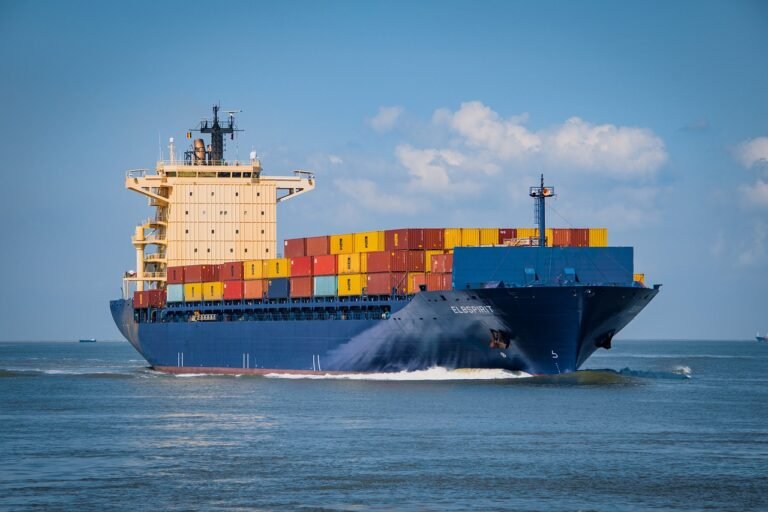A Sustainable Future: The Role of GHG Pricing and E-Fuel Subsidies in Shipping’s Energy Transition
A high greenhouse gas (GHG) price coupled with targeted subsidies for e-fuels have shown to be “essential” for mending the competitiveness gap between zero-emission fuels such as green ammonia and other early compliance options like liquefied natural gas (LNG), biofuels, and carbon capture and storage (CCS), a new analysis found.
According to a recent report from the UK’s UCL Energy Institute Shipping and Oceans Research Group (UCL) and UMAS titled “How the IMO’s mid-term measures might shape shipping’s energy choices and transition to e-fuels”, there are considerable risks in some of the options that the International Maritime Organization (IMO) is considering as stepping stones for shipping’s energy transition.
In terms of competitiveness, fossil fuels (including LNG), biofuels, and CCS would top the ladder up to 2036, the study revealed, meaning that ammonia dual fuel ships could be the lowest-cost option despite operating on blue ammonia until 2044. Moreover, ships considered competitive in the 2027-2035 timeframe could potentially see a 25% higher total cost of operation from 2040 onward.
The report proposes that if shipowners order tonnage to maximize competitiveness over a short period (for instance, considering only 5 years ahead), the shipping industry could face a ‘major’ risk of technology lock-in, greater asset value volatility, and higher transport costs.
The study argued that a global fuel standard (GFS) in combination with a flexibility mechanism, even if it were paired with a multiplier that ‘boosts’ the credit given to e-fuels, is unlikely to kickstart an e-fuel transition before 2044.
However, there is a light at the end of the tunnel, as highlighted in the report: policies with targeted e-fuels incentives.
As understood, these incentives—whether in the form of a subsidy, reward, or another solution—derived from the revenue generated by a GHG price or levy carry the potential to bridge the price gap between e-fuels and low-cast compliance options. As a result, this could provide shipping’s energy transition a needed push forward in the ‘critical’ 2027-2035 period.
Specifically, as per the analysis, GHG pricing starting at $30 per tonne of CO2e is very unlikely to provide certainty of support to allow the energy transition to start and scale through the 2027-2035 timeframe. GHG pricing starting at $150 per tonne of CO2e, however, may create ‘sufficient’ revenue to support both the energy transition and ensure a “just and equitable transition for affected communities.”
Within this context, the levy and the reward work in synergy to close the competitiveness gap between e-fuels and other lower-cost compliance options, UCL’s and UMAS’ report puts forward.
Owing to the TCO modeling and the subsequent results, it was revealed that changes to the most competitive technology and fuel combinations could “fundamentally shift” the expected energy mix, the report said.
The study’s analysis also ‘directly’ relates to the viability (and costliness) of the IMO’s revised strategy targets adopted in July 2023 at the Marine Environment Protection Committee (MEPC 80) climate summit in London.
The report spotlighted that with little time for an energy transition, the shipping sector is bound to be caught in a vicious cycle unless the existing policy can immediately shift to e-fuels.
Conversely, it is suggested that a ‘clearer’ signal from the IMO’s mid-term measures has the potential to foster long-run investment, stabilize returns and asset values, and unlock an array of other benefits.
Competitiveness: The other side of the seascape
Transitioning immediately or rapidly, however, poses a huge risk for the industry.
Namely, in a separate study titled “Supply-side and demand-side stranded asset risks in shipping”, UCL’s Energy Institute Shipping and Oceans Research Group unveiled that over a third of the global fleet could end up being prematurely scrapped unless it underwent retrofits to remain viable as the maritime industry sails closer and closer to its climate neutrality targets.
This represents a colossal burden for the shipping sector as – according to the research group’s examination – it is already facing ‘great’ supply-side risks linked to carbon-intensive ships becoming obsolete and demand-side risks connected to waning fossil fuel demand.
Marie Fricaudet, PhD Student at the UCL Energy Institute, remarked: “Even those retrofits would come at a cost, so we expect some asset devaluation as the mid-term measures become more material.”

